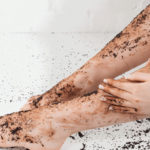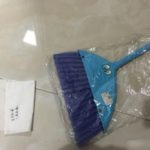Waxing is a popular hair removal method, but it can sometimes be painful. If hair removal suits you, you may opt for this method, but those with sensitive or acne-prone skin should be cautious. There are also different types of waxes used for this method, depending on hair growth and skin type. If you have sensitive skin, go for a hard wax. You can also use aloe vera gel to soothe the skin after each hair removal session and regularly exfoliate your face to prevent ingrown hairs. There are some basic hair removal methods that you can refer to.
Shaving your face
Shaving will remove hair from the surface, not the hair follicle, so you may need to shave at least once a week. You can shave dry or use a facial oil or your favorite aloe vera gel to shave. Also, make sure to clean your razor before and after use. Apply a turmeric powder mask or aloe vera gel after each shave.

There are many different ways to remove hair.
Turmeric Mask
Mix 3 tablespoons of whole wheat flour, a few drops of lemon juice, half a teaspoon of turmeric powder, and enough rose water to form a thick paste that can be spread. Apply a thick layer of this mask to your face and let it dry completely. This process can take about 20 to 30 minutes or even longer, depending on the thickness of the mask. Using dry fingertips, gently scrape off the mask by massaging and rinsing off the residue.
Rice Flour Mask
Mix rice flour, a few drops of lemon juice, and enough yogurt to form a thick paste that can be spread. Apply this mixture to your skin and let it dry completely. Using dry fingertips, scrape off the mask and wash your face with water.

The rice flour mask works similarly to the turmeric mask.
Gelatin
Gelatin strips work well as a hard wax when prepared correctly. Mix 3 to 4 tablespoons of gelatin powder and add enough milk or water. Microwave it to melt everything together, and while still warm, apply it to your face. Let it dry completely, then peel it off gently.
Laser Hair Removal
Laser treatment is one of the more expensive methods, but it requires minimal maintenance, at least once a year. There are different types of lasers used, depending on hair growth and thickness, and a dermatologist can recommend the perfect laser for you.



































